This article was medically reviewed by Lacy Windham, MD. Lacy Windham, MD, is a Board-Certified Obstetrician & Gynecologist in Cleveland, Tennessee. Dr. Windham attended medical school at the University of Tennessee Health Science Center in Memphis. Her residency was completed at Eastern Virginia Medical School in Norfolk, Virginia. She was the recipient of multiple awards during her residency training, including Most Outstanding Resident in Maternal Fetal Medicine, Most Outstanding Resident in Oncology, Most Outstanding Resident Overall, and Special Award in Minimally Invasive Surgery.
There are 12 references cited in this article, which can be found at the bottom of the page.
wikiHow marks an article as reader-approved once it receives enough positive feedback. In this case, several readers have written to tell us that this article was helpful to them, earning it our reader-approved status.
This article has been viewed 439,845 times.
A menstrual cycle is generally between three and seven days long. If you are experiencing more frequent or long periods, then you may want to find ways to better control your hormones and shorten the overall length of your period. Birth control pills and IUD (intrauterine devices) are the most reliable methods to shorten and better control your period; however, natural methods such as exercise, weight loss, and better sleep can be tried as well.
Steps
Seeking Medical Care
-
1Try birth control pills. If you want shorter, lighter periods, prescription birth control pills can help. Ask your doctor about starting birth control.
- Most oral contraceptives (birth control pills) come in a 28-day pack. The first 21 pills contain a combination of estrogen and progesterone that prevent ovulation and therefore pregnancy. The last 7 pills in the pack are placebo pills without any hormones.
- While you're on the last pills of the pack, you will experience a period of withdrawal bleeding similar to a period. However, the biological processes behind withdraw bleeding are different from those that happen during menstruation. Many women experience shorter, lighter periods while on birth control pills.[1]
-
2Use one of the newer oral contraceptive pills that come in 24 day cycles. What this means is that you have 24 rather than 21 hormone pills, and only 4 placebo pills, which tends to limit the withdrawal bleeding ("period") to being 4 days or less.[2]
- This is not guaranteed to work, but if you stick with it over a number of months your body will likely adjust and begin to have shorter periods. Determination is key as many women do not get results until 3 or so months of consistent use.
Advertisement -
3Learn about "extended cycle" birth control pills. This is another very effective option for women who are troubled by their period, as it actually eliminates many of your periods! Most of these "extended cycle" pills give you hormone pills for 3 months, followed by one withdrawal bleed ("period"). What this means is that you are bleeding on average once every 3 months, rather than once a month.[3]
- Note that this will not necessarily shorten your periods, but it will make them less frequent, so it may be a very good option for you to try.
-
4Be aware of side effects of any form of birth control pill.[4] Before starting oral contraceptives, it is always important to get the "okay" from your physician that you have no other health concerns that would prevent you from being on the pill. It is also important to be aware of side effects that could occur, particularly in the first few months of starting the birth control pill.
- One of the most common side effects is breakthrough bleeding and spotting. What this means is you may have some bleeding or spotting even on the days when you are taking hormone pills, as your body adjusts to having an "external" (outside) source of hormones. This will likely go away after using the pill for a few months consistently.
- Other possible side effects include breast tenderness, nausea, stomach cramps, bloating, diarrhea or constipation, or weight gain.
- Note that, if you continue to have unwanted side effects with your current birth control pill, you can always speak to your doctor about switching to another brand. Different pills have different ratios of estrogen to progesterone, and it often takes women a few tries to find the pill that is right for them.
-
5Ask your doctor about an IUD. IUD stands for intrauterine device. An IUD is a t-shape device made of copper or plastic that a health care professional inserts into a woman's uterus in order to prevent pregnancy. Depending on the type of IUD, it may also be helpful in shortening your menstrual cycle.[5]
- The copper IUD is cheaper and lasts longer (up to 10 years), but it also is known to cause heavier periods and more cramping, so this would not be the right choice for you if you are trying to shorten (and/or lighten) your periods.
- The Mirena IUD, however, is an excellent choice. It is made up of progesterone (a female hormone) and is the "gold standard" form of birth control. It is nearly 100% effective at preventing pregnancy, lasts for up to 5 years, and also significantly lightens periods (and, for some women, actually gets rid of periods altogether).
- The downside to the Mirena IUD is cost, which is normally a few hundred dollars. However, if you are able to get one, it is by far your best bet at having shorter and lighter periods.
-
6Educate yourself around IUDs.[6] Many women choose birth control pills over an IUD simply because they are not educated around IUDs, and birth control seems like a "simpler" (and perhaps "less scary") option, since you do not need to have something inserted into your uterus.
- However, women who are educated around IUDs are far more likely to get them put in, as they realize that the benefits are numerous. Not only are periods lighter and shorter, it is also the most effective form of contraception, and, despite the initial cost, over the course of 5 years it actually costs less than continually purchasing birth control pills.
-
7Consult your doctor is you are worried about abnormally long and heavy periods. In some women, it may be the sign of an underlying medical condition that needs to be diagnosed and treated, so it is always best to see a doctor to either rule these things out, or to get treatment as needed.[7]
- While the duration and intensity of menstrual cycles vary between women, there are several factors that might warrant medical concern. If you need to use double sanitary protection to control flow, pass blood clots more than one day of your cycle, soak through a sanitary napkin or tampon within an hour, must change menstrual protection during the night, have periods that last longer than week, or have symptoms like tiredness and shortness of breath you should see your gynecologist.[8]
- There are a number of possible causes for abnormally heavy menstrual bleeding. Causes can range from fairly benign hormone imbalances, such as an under-active thyroid, or certain medications, but they can also be quite serious. Certain cancers and ovarian diseases can cause abnormal bleeding. Your doctor should be able to figure out the cause by performing a routine pelvic exam and taking stock of your medical history. Additional blood tests, x-rays, and ultrasounds may be needed depending on what your doctor suspects is the cause.[9]
- Treatment depends on the cause of the bleeding. Iron supplements, ibuprofen, oral contraceptives, or intrauterine devices (IUDs) may help reduce symptoms.[10]
- Before your appointment, make sure you know about any pre-appointment instructions such as not eating the night before or tracking your cycle. You should also have a list of any medications you are on, any recent changes in your life, the symptoms you're experiencing, and any questions you might have for your doctor.[11]
Trying Natural Methods
-
1Maintain a healthy exercise routine. Exercising on a regular basis can have a great effect on your overall health, and it can also help your periods stay short and light.
- If you are overweight, you might want to consider talking to your doctor about a healthy weight loss plan. Maintaining a healthy weight can help you periods be shorter and lighter overall.
- Regardless of weight, women who live sedentary lifestyles tend to have longer periods. Moderate physical activity, in the form of 45 minutes to an hour of exercise a day, can result in shorter periods. Exercise can come in the form a sport you enjoy, a brisk walk, cardiovascular exercise, or jogging.[12]
- Be careful about overdoing it. Sometimes, excessive exercise can cause menstruation to stop altogether. This can be dangerous, especially if you're not getting the proper nutrients while working out. You should always consult your doctor before adjusting your workout routine.[13]
-
2Alter your diet. While the effects of diet on menstruation are debated, some studies do indicate a low fat diet full of healthy carbohydrates might result in shorter periods.
- A diet rich in complex carbohydrates, like whole grains, fruits, and vegetables, while low in sugar and alcohol can reduce symptoms like cramping and mood swings associated with menstruation. It may also shorten the overall length of your menstrual cycle.[14]
- A few studies exist that indicate a low fat diet may also shorten menstrual periods, at least to a small degree.[15]
- As weight loss can lead to shorter periods, altering your diet if you're overweight may help with weight loss and therefore reduce period length. However, you should always talk to your doctor before making any decisions about losing weight.
-
3Improve your sleep schedule. Disrupted or limited sleep contributes to stress, which can lead to longer, painful periods. Getting on a regular, healthy sleep schedule can help you better regulate your emotions.
- Losing even a few hours of sleep can lead to increased stress, anger, and anxiety. All of these things can manipulate hormone levels and lead to a heavier, longer period.[16]
- Try to go to bed and wake up at the same time each day, including weekends. Your body will adjust to this schedule and you'll settle into a regular sleep schedule. When you wake up, set the alarm for the time you actually plan on being awake. Using the snooze button can lead to interrupted, unpleasant sleep that can leave you tired throughout the day.[17]
References
- ↑ https://uihc.org/health-topics/birth-control-pill-fact-sheet
- ↑ http://www.mayoclinic.org/healthy-lifestyle/birth-control/in-depth/birth-control-pill/art-20045136
- ↑ http://www.mayoclinic.org/healthy-lifestyle/birth-control/in-depth/birth-control-pill/art-20045136
- ↑ https://www.plannedparenthood.org/learn/birth-control/birth-control-pill/what-are-the-disadvantages-of-the-pill
- ↑ http://www.plannedparenthood.org/learn/birth-control/iud
- ↑ http://www.plannedparenthood.org/learn/birth-control/iud
- ↑ https://www.betterhealth.vic.gov.au/health/healthyliving/menstruation-abnormal-bleeding
- ↑ https://www.mayoclinic.org/diseases-conditions/menorrhagia/symptoms-causes/syc-20352829
- ↑ https://www.cdc.gov/ncbddd/blooddisorders/women/menorrhagia.html
- ↑ https://www.cdc.gov/ncbddd/blooddisorders/women/menorrhagia.html
- ↑ http://www.mayoclinic.org/diseases-conditions/menorrhagia/basics/preparing-for-your-appointment/con-20021959
- ↑ http://www.indiatimes.com/health/healthyliving/how-exercise-affects-your-menstrual-cycle-238748.html
- ↑ http://www.indiatimes.com/health/healthyliving/how-exercise-affects-your-menstrual-cycle-238748.html
- ↑ https://www.nlm.nih.gov/medlineplus/ency/article/003150.htm
- ↑ http://www.ncbi.nlm.nih.gov/pubmed/3692908
- ↑ https://www.psychologytoday.com/blog/finding-cloud9/201308/5-quick-tips-reduce-stress-and-stop-anxiety
- ↑ https://www.psychologytoday.com/blog/finding-cloud9/201308/5-quick-tips-reduce-stress-and-stop-anxiety
About This Article
If you want to make your period shorter, talk to your doctor about using hormonal birth control, since it can shorten your period and reduce your symptoms. For example, you might try taking birth control pills, which come in a 28-day pack and regulate your menstrual cycle. Alternatively, consider getting an IUD, which is a small t-shaped device that is inserted in your uterus and can make your periods lighter and shorter. If you want to use natural methods to shorten your period, try exercising on a regular basis and reducing the amount of sugar in your diet. To learn how to tell if a medical condition is causing an abnormally long period, read more from our Gynecologist co-author.
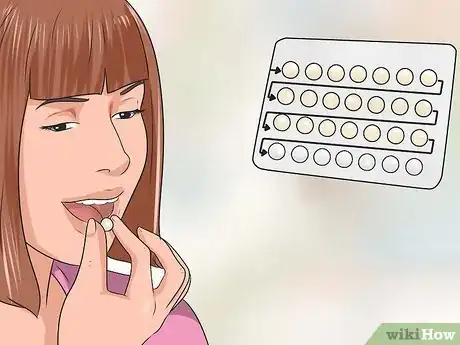
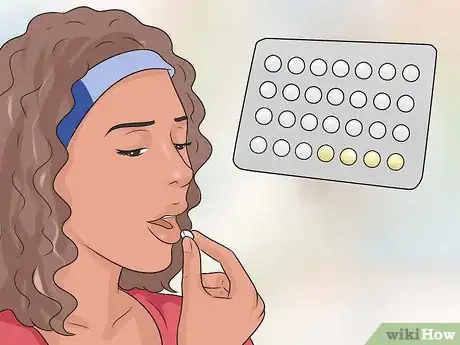
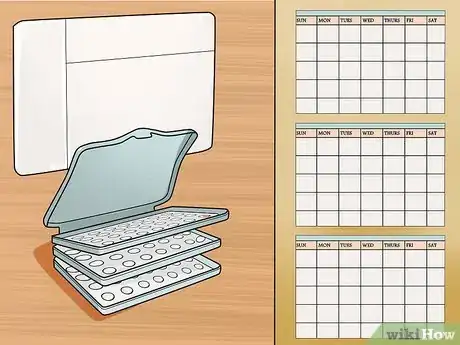
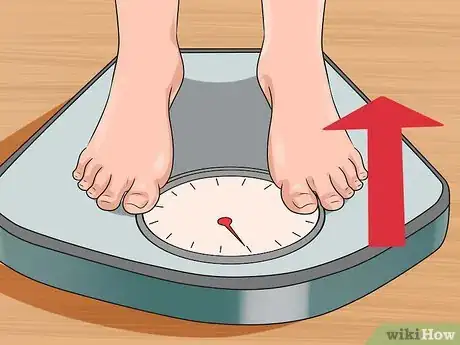
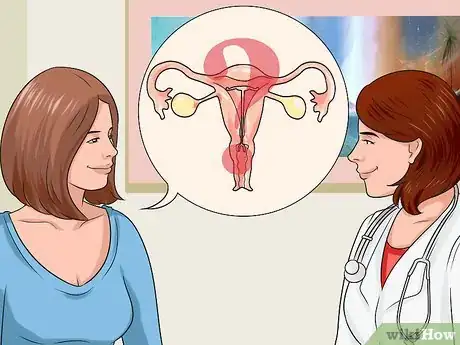
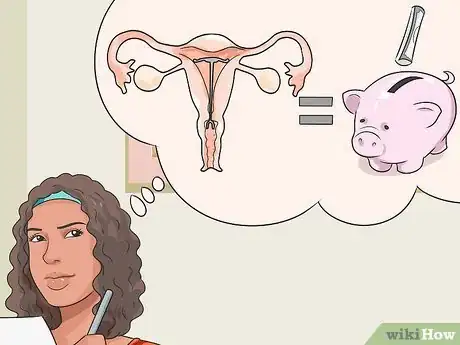
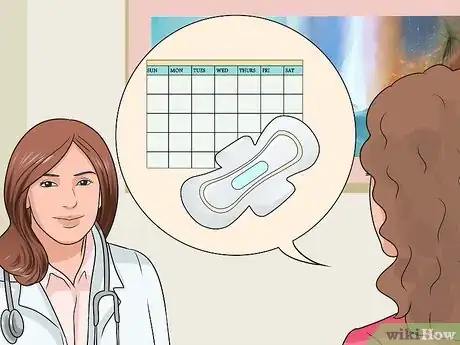
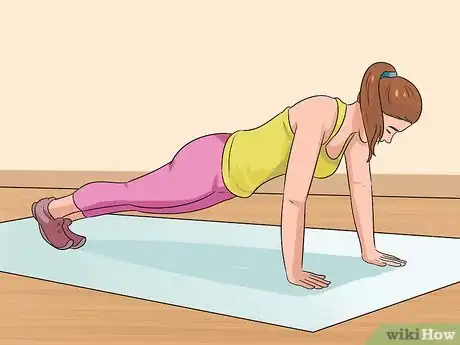
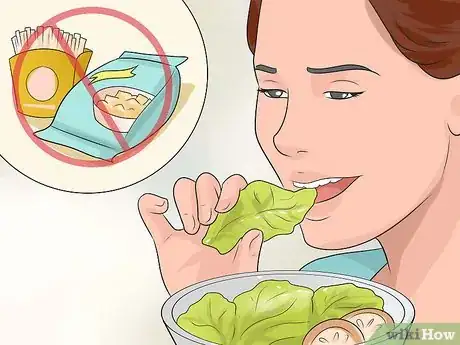
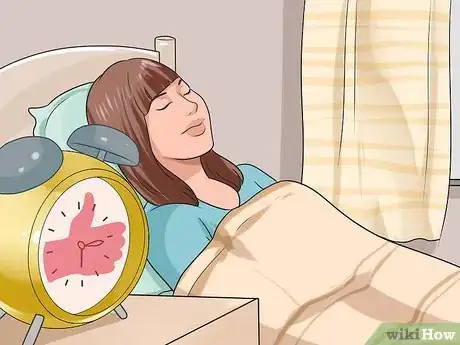
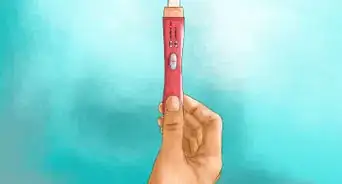
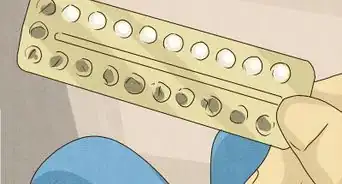
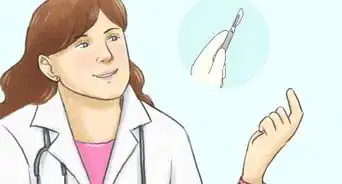


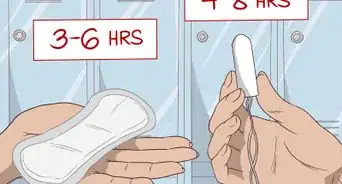







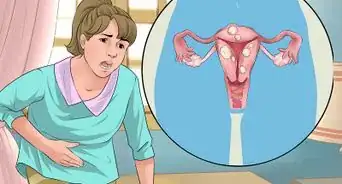


















































Medical Disclaimer
The content of this article is not intended to be a substitute for professional medical advice, examination, diagnosis, or treatment. You should always contact your doctor or other qualified healthcare professional before starting, changing, or stopping any kind of health treatment.
Read More...